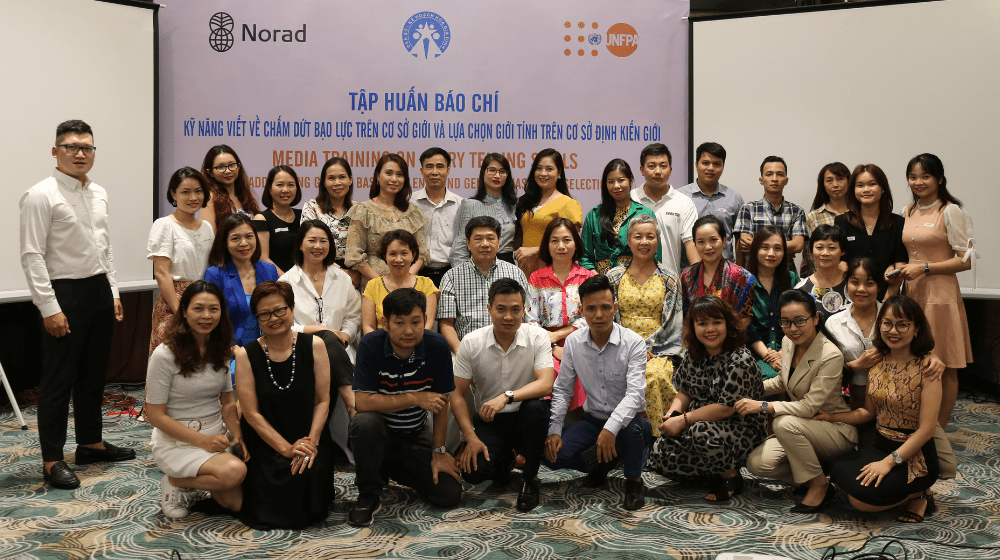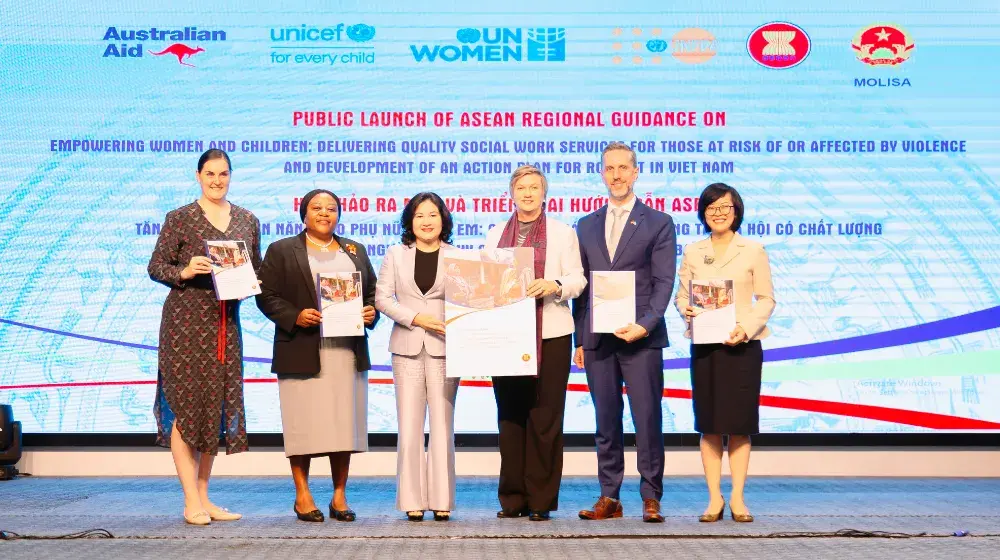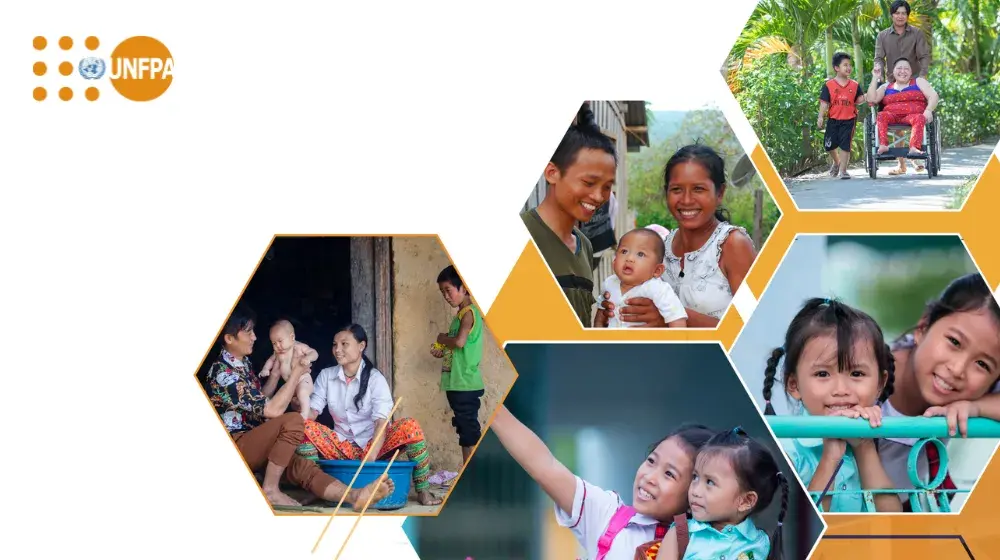- Mr. Dinh Huy Duong, Director of Education and Communication Department, Ministry of Health
- Ms. Tran Bich Loan, Deputy Director of the Gender Equality Department, MOLISA
- Ms. Nguyen Van Anh, Director of CSAGA
- Distinguish journalists and representatives from the Vietnamese media agencies
- My colleagues from the UNFPA Regional Office in Bangkok and from UNFPA Vietnam.
I am pleased to welcome you all to our media training on storytelling skills in addressing gender-based violence and gender-biased sex selection in Viet Nam. I want to thank you for coming from Hanoi to Ha Long to attend this two-day training workshop despite your busy schedule. Your presence here today shows your commitment to joining UNFPA’s efforts to achieve “Zero gender-based violence and harmful practices against women and girls”.
Dear participants,
We organise this training workshop as we want to share with you the most updated information and knowledge about gender-based violence (GBV), gender biased sex selection (GBSS) and son preference. We also want to impart story telling skills and professional ethics when reporting such delicate issues.
We hope that you will tap into this opportunity to discuss and share experience on how to interview and interact with women and men who wish to share their personal stories, and talk about sensitive and complex topics, especially in today’s online and inter-connected world.
Gender equality is a human right. Women are entitled to live with dignity and with freedom from want and fear. Gender equality is also a precondition for advancing socio-economic development and reducing poverty. Empowered women contribute to the health and productivity of the whole families and communities, and they stimulate prospects for the next generation.
Gender-based violence is a manifestation of gender inequality which is deeply rooted in Viet Nam. According to the 2019 national study on violence against women, nearly 2 in 3 women aged 15 – 64 experienced at least one form of physical, sexual, psychological and/or economic violence in their life time. Gender-based violence is very much hidden in society, when more than 90% did not seek any help from public services, and half of the women who experienced violence told no one about it. Gender-based violence is costing Viet Nam 1.81% of GDP, which is significant.
Meanwhile, gender-biased sex selection (GBSS) has been identified as the major cause of the unbalanced sex ratio at birth (SRB) in Viet Nam. GBSS is a result of three factors. The first one is son preference, which is deeply rooted in the traditional culture in many countries in the world including Viet Nam. When couples conceive a girl, there is always a tendency of giving up on the girl in preference for a son. The second factor is fertility decline and fertility limitation. In the case of Viet Nam, we basically have 2 chances of having a child. If the first one is a girl, and the second, which must be the last one, is also confirmed to be a girl, couples tend to resort to a termination of pregnancy. And the last factor is the presence of reproductive technology which is increasingly available in Viet Nam, whether it is urban or rural areas. As a result, Viet Nam’s SRB is not balanced, which is currently estimated at 111.5 boys per 100 girls, which is the third highest in Asia after China and India. When compared with normal SRB, the current situation in Viet Nam points to a yearly deficit of 45,900 female births in 2019. There will be a demographic implication with sex imbalance at birth, including what demographers call as “marriage squeeze,” where more and more men will find it difficult to find their partners, as it is projected that there will be a surplus of 1.5 million men by 2034, which will even increase to 2.5 million by 2059.
To stop gender-biased sex selection and “son preference” and to honour the roles and the values of women and girls in the family and in society, it is critical to stimulate a change in everyone’s attitudes and behaviours towards gender-biased sex selection. However, changing everyone’s attitudes and behaviours cannot be achieved over night, and this is where the media plays a role.
This training will help to connect us all together So, I want to appeal to every reporter to join and stop violence against women and girls as well as stop gender-biased sex selection. Let’s get united to stop those harmful practices. Let us all get united to achieve Zero gender-based violence and harmful practices against women and girls.
Last but not least, I want to thank the Government of Norway for providing financial support to materialise this workshop. Thank you for your attention, and wishing you all the best for the successful training.




